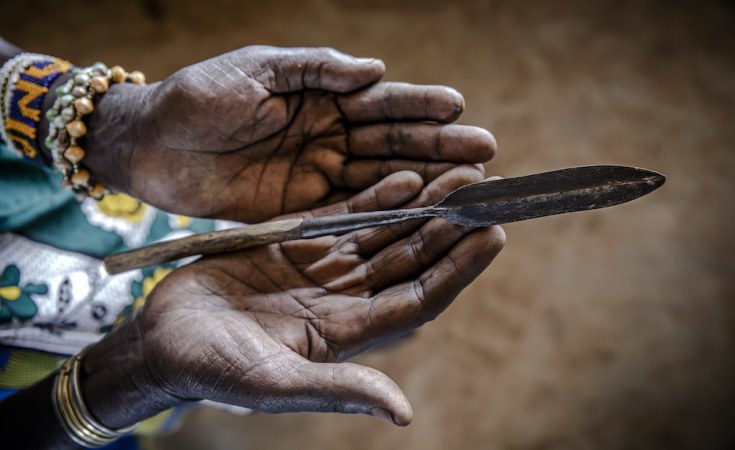Upper Egypt, Egypt — "People tell me we inherited this practice - that they're doing it because their neighbours are doing it," Georgi Wahba told UNFPA, the United Nations sexual and reproductive health agency.
In his village in the Minya Governorate of Upper Egypt, Mr. Wahba, 53, has become well known for his advocacy against female genital mutilation - a practice that although outlawed in the country, remains widespread. An estimated 86 per cent of ever-married women, aged 15 to 49, in Egypt have undergone some form of the procedure, rising to 96 per cent in Upper Egypt.
"I ask what they gain out of subjecting girls to this," Mr. Wahba said of the awareness-raising sessions he holds with families, couples and communities. "If you are about to get married, why would you need this woman to have been subjected to female genital mutilation? Isn't it more important to agree on other things, to build a life together?"
He began organizing the sessions as part of UNFPA's 'Generation Dialogues' - a project that aims to shift perspectives on harmful practices by encouraging communities to act as agents of change and, like Mr. Wahba, to learn how to bridge the gap between generations when it comes to unequal social norms and traditions.
Engaging in dialogue
To tackle the taboos that often cloud conversations around the topic, Mr. Wahba aims to ensure that the learning experience is enjoyable and inclusive for everyone. "We bring together entire families - a husband and wife and their daughters, and spend the day with them" he said.
The project, which is funded by the Government of Norway, also offers training on how to communicate about harmful practices with fellow community members. Since its inception in 2021, over 350 community members have participated and, like Mr. Wahba, have become "Dialogue Champions".
For Mr. Wahba, it was important to learn how to speak about the issue in a way that felt natural. He didn't want others to simply agree with him without understanding why; instead, he was eager for each person to come to their own conclusions based on the facts they had learned. When community members refused to attend the sessions, he had patience - encouraging them to think for themselves and not to take the customs they had grown up with for granted.
Now a trusted voice on the matter, Mr. Wahba is the person his neighbours contact when they hear someone is at risk of being subjected to female genital mutilation. It is progress like this that makes him hopeful for the future. He believes that people in his community are more educated about the issue than ever before, and knows that open, honest conversations are the way forward.
"Engaging in dialogue among families, friends and communities is the most important step."
Taking a stand
Although female genital mutilation is often seen as a patriarchal norm upheld to oppress women and girls, boys and men from practising communities are in fact at least as likely to oppose it as women and girls are. The attitudes of parents, including the fathers of young girls, are particularly important.
But while taking a stand for their own daughters is an important step, advocating for the elimination of the practice is an even more powerful way for men to effect change. Fathers like Zanaty El-Sawy, from the Asyut Governorate of Upper Egypt, have seen first-hand how fulfilling that role can be. Mr. El-Sawy's journey began one day when he arrived home and told his wife that he needed to discuss something important.
"I am always interested in educating myself and expanding my horizons," he explained. "I have daughters, so I decided to research the topic of female genital mutilation."
This led him to attend a four-day workshop on the practice and other forms of violence against women, led by UNFPA together with the NGO Care.
"I learned about the harmful impact of female genital mutilation on women and girls, and that it has no religious or medical foundation," he said. "I found out it is not a necessary practice at all."
At the workshop, participants like Mr. El-Sawy engage with a curriculum specifically designed to engage men and boys. Although there's a special focus on female genital mutilation, the sessions also cover topics such as self-image and identity, gendered power dynamics and gender-based violence.
While at first he found it difficult to relinquish the customs he had grown up with, Mr. El-Sawy now considers himself an ally in the fight against female genital mutilation and feels compelled to share what he has learned. He believes that men bear a special responsibility to discuss the topic with their peers.
"Women have rights just like men - they should have a say just like men."


